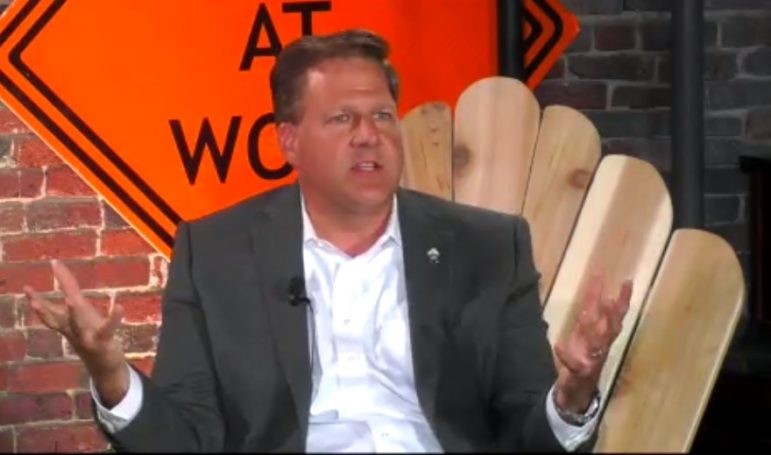Paula Tracy, InDepthNH.org
MANCHESTER – The state’s two gubernatorial candidates were interviewed separately on Tuesday at a town hall-style online forum on the state’s disability policy, taking separate approaches to the educational freedom account, among other issues. rice field.
Democratic candidate Dr. Thomas Sherman was interviewed first, followed by Republican Gov. Chris Sununu, in a live online broadcast hosted by Granite Independent Lives and eight other disability advocacy groups.
Hosted by Scott Spradling from the Girls at Work offices in Manchester.
Discussions also included adequate housing, remote access to government meetings, and workforce issues.
A two-term senator from Rye, Sherman has worked as a doctor on the Seacoast for over 30 years. He helped expand Medicaid in Concord and has been active in Concord disability issues.
Newfields’ Sununu is the state’s 82nd governor, currently in his third term and seeking a fourth term.
Trained to be an engineer, Sununu served as Chief Executive Officer of the Waterville Valley Ski Resort before becoming Governor in 2017 and serving on the Executive Council for District 3 from 2011-2017. rice field.
He, too, has worked on governance barriers for over a decade.
Sununu and Sherman said they support a decentralized, community-based approach to disability services.
Both were asked about the state’s Education Freedom Accounts, which allow low-income families to receive an average of about $5,000 in state funding to attend non-schools within their communities.
Some of these alternative schools do not offer special education and are not required to comply with the Federal Education for Persons with Disabilities Act. It is also permissible to refuse admission.
“This kind of economic loss puts pressure on the local school districts that have to provide special education services. How do you ensure that special students receive a fair and comprehensive education?” both were asked.
Sherman said he fundamentally opposes public education funding going to private or religious schools.
While some students may really need professional services, “basically, until every child in New Hampshire has access to a good public school education, we will continue to divert public funds. You shouldn’t,” Sherman said.
“My first choice is to stop the program. must meet the eligibility requirements each year,” Sherman said, though he acknowledged this was a legislative decision, not a governor’s decision.
“But secondly, if we continue with this program … we will do everything we can to ensure that schools that accept taxpayer money cannot discriminate based on disability,” Sherman said. .
“The current system is really outrageous to me,” Sherman said.
Sununu refutes claims that communities are financially hurt by the Education Free Account, arguing that each child should receive an education that meets his or her needs and that there is an unmet need for special education in the community. He pointed out that many children who leave because of
“It’s not a blow to our school,” Sununu said.
“They get the state portion, which is about one-third of the money. They can attend private schools, they can be tutored, they can get additional special education services, but let me be clear, no one is IDEA. Your public school is obligated to provide those services.
He said he knew personally because one of his children needed those services. So you have to make sure the system is there. The idea that money is pouring out of schools is, again, completely false. First, even if a child decides not to go, the public schools keep his two-thirds of that money so they can provide any special education services that may be there. And all that third of him in that state won’t be leaving anytime soon, and 100% will stay in school the next year. The next year, 50% of the state budget remains for schools. Three years after a student leaves, he receives 25% of state money in his third year, even though he hasn’t been in the system for years. So this is a democratic lie. This idea that money is overflowing from school. Our Education Trust Fund has more money than ever before. So money is not an issue. “
Responding to the question, Sununu said, “I was horrified that someone thought I was being disenfranchised, but I wasn’t.”
“It’s your money,” he said. “Do you see schools standing up and saying this program is bankrupting us?”
“No. No, find me later and find the school that’s saying that. I found their finances and showed they put in more dollars per child than any administration.” You can argue that we get money from our children and public schools. It’s a legal requirement, and relevance isn’t just for public school kids, it’s whether they’re following the traditional path or have mental health problems and It’s for all children whether they have to go to a special school for it or not. Yes, and I just want people to explore it and see the actual facts and data,” Sununu said.

